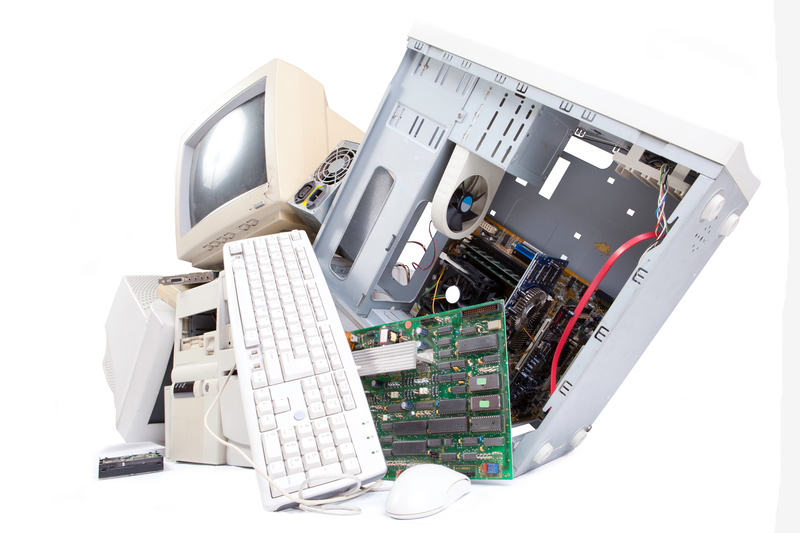Introduction to Glass Recycling
In an era where sustainability is no longer just a choice but a necessity, revolutionizing waste management practices is crucial. Among all recyclable materials, glass remains one of the most versatile and eco-friendly options. By implementing innovative glass recycling strategies, we can effectively mitigate waste and contribute to a cleaner planet.

The Importance of Glass Recycling
Glass recycling plays a pivotal role in reducing landfill waste, conserving natural resources, and lowering energy consumption. Unlike many materials, glass can be recycled indefinitely without losing purity or quality. This unique property makes it a valuable component in our waste management systems.
Environmental Benefits
- Reduction of Landfill Waste: By recycling glass, we decrease the volume of waste ending up in landfills, which reduces methane emissions and extends landfill lifespan.
- Conservation of Natural Resources: Recycling glass saves natural resources like sand, soda ash, and limestone, which are the primary raw materials in new glass production.
- Energy Savings: Manufacturing glass from recycled materials consumes significantly less energy compared to producing glass from raw materials.
Innovative Glass Recycling Strategies
To maximize the benefits of glass recycling, researchers and industry leaders are continually developing new strategies to streamline and enhance the recycling process.
Advanced Sorting Technologies
The introduction of sophisticated sorting technologies has greatly increased the efficiency of glass recycling. Optical sorters, for instance, use sensors to differentiate between colors of glass and separate contaminants. This precision leads to a higher quality of recycled glass and reduces the need for manual sorting.
Community-Based Recycling Initiatives
Local governments and communities play a vital role in the glass recycling ecosystem. By launching community-based recycling programs, municipalities can spread awareness and increase participation.
- Education and Outreach: Implementing educational campaigns can encourage more people to participate in glass recycling by informing them of its benefits and processes.
- Accessible Collection Points: Establishing convenient and well-publicized drop-off points increases participation rates and minimizes contamination.
The Role of Businesses in Glass Recycling
Businesses, especially those in the food and beverage industry, have a significant influence on the glass recycling landscape. By adopting sustainable practices, they can drive major changes.
Utilization of Recycled Glass
Businesses can incorporate recycled glass into their production processes, thereby closing the loop and supporting sustainability. For instance, some companies use glass cullet to create new bottles or jars, significantly reducing raw material needs.
Corporate Responsibility Initiatives
Many companies are embracing corporate social responsibility (CSR) initiatives that prioritize environmental stewardship. This includes collaborating with recycling organizations and investing in technologies that enhance recycling operations.
Challenges and Solutions in Glass Recycling
Despite its advantages, glass recycling is not without its challenges. Addressing these issues is essential for creating a sustainable recycling infrastructure.
Contamination Issues
- Problem: Contaminants such as food residue and non-recyclable materials can impede the recycling process.
- Solution: Public education campaigns focused on proper glass recycling techniques can help reduce contamination.
Economic Constraints
- Problem: Costs associated with collecting, transporting, and processing glass can be high, particularly in areas with less access to recycling facilities.
- Solution: Investing in state-of-the-art processing facilities and introducing financial incentives for businesses and consumers can alleviate these economic burdens.

The Future of Glass Recycling
The future of glass recycling holds promising potential thanks to continuous technological advancements and growing global consciousness towards sustainability.
Emerging Technologies
Innovations in recycling technology promise a more efficient and environmentally friendly future. Breakthroughs like chemical recycling and smart recycling bins that revolutionize collection methods represent the next frontier.
Global Collaboration
International cooperation is essential to standardizing recycling practices and policies. By collaborating, countries can learn from each other's successes and challenges, leading to more effective global glass recycling strategies.
Conclusion
By revolutionizing our approach to waste with innovative glass recycling strategies, we can make significant strides towards a sustainable and eco-friendly future. Through advanced technology, community involvement, and corporate responsibility, glass recycling can be a cornerstone of environmental conservation efforts. As individuals, businesses, and governments work together, the potential for a cleaner planet is within reach.